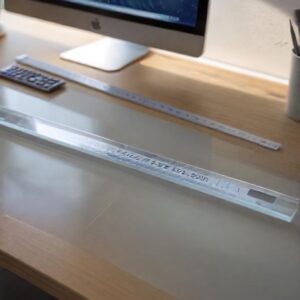Millimeters to Inches Converter
Understanding 337 mm in Inches
Converting units is a common task, especially when dealing with measurements in different systems. If you want to know what 337 mm in inches equals, you’re in the right place. This article will explain how to convert millimeters to inches using simple calculations and tips.
How to Convert 337 mm in Inches
To find out how to convert 337 mm in inches, you can use the conversion factor: 1 inch equals 25.4 mm. To convert millimeters to inches, you can use the following formula:
Inches = Millimeters ÷ 25.4Using this formula, you can calculate:
Inches = 337 mm ÷ 25.4 ≈ 13.3071 inchesSteps to Convert 337 mm in Inches
- Identify the value in millimeters (in this case, 337 mm).
- Divide this number by 25.4.
- The result is the measurement in inches, approximately 13.31 inches.
Benefits of Knowing 337 mm in Inches
Understanding how to convert 337 mm in inches can enhance your ability to work with various measurement systems, which is crucial for fields like engineering, carpentry, and design. Here are a few key benefits:
- Improves accuracy in projects that require precise measurements.
- Facilitates communication in international settings, where measurement systems may differ.
Common Conversion Mistakes
While converting 337 mm in inches can be straightforward, people often make these mistakes:
- Not using the correct conversion factor (25.4).
- Rounding too early in the conversion process.
10 Key Facts About 337 mm in Inches
- How does 337 mm in inches work? It works by dividing the millimeter value by 25.4.
- Can you easily 337 mm in inches? Yes, especially if you follow the conversion formula.
- What is the approximate result for 337 mm? About 13.31 inches, rounded to two decimal places.
- Why convert mm to inches? Different regions use different measurement systems, so conversion aids functionality.
- Is there a digital tool for conversion? Yes, many online calculators can convert mm to inches automatically.
- Can I convert the other way around? Yes, multiply inches by 25.4 to get millimeters.
- Why do certain fields prefer one measurement? Industry standards and specifications often dictate the preference.
- What are practical uses of this conversion? Carpentry, construction, and engineering often require accurate measurements.
- How often is millimeter used? It is widely used in scientific and engineering contexts.
- Can I perform this conversion manually? Yes, it can be done easily with basic division.
Wow, I always thought converting mm to inches would be super complicated, but this made it so easy! Just 337 mm is like… 13.27 inches, right? Who knew I’d need this for my DIY project! 😂